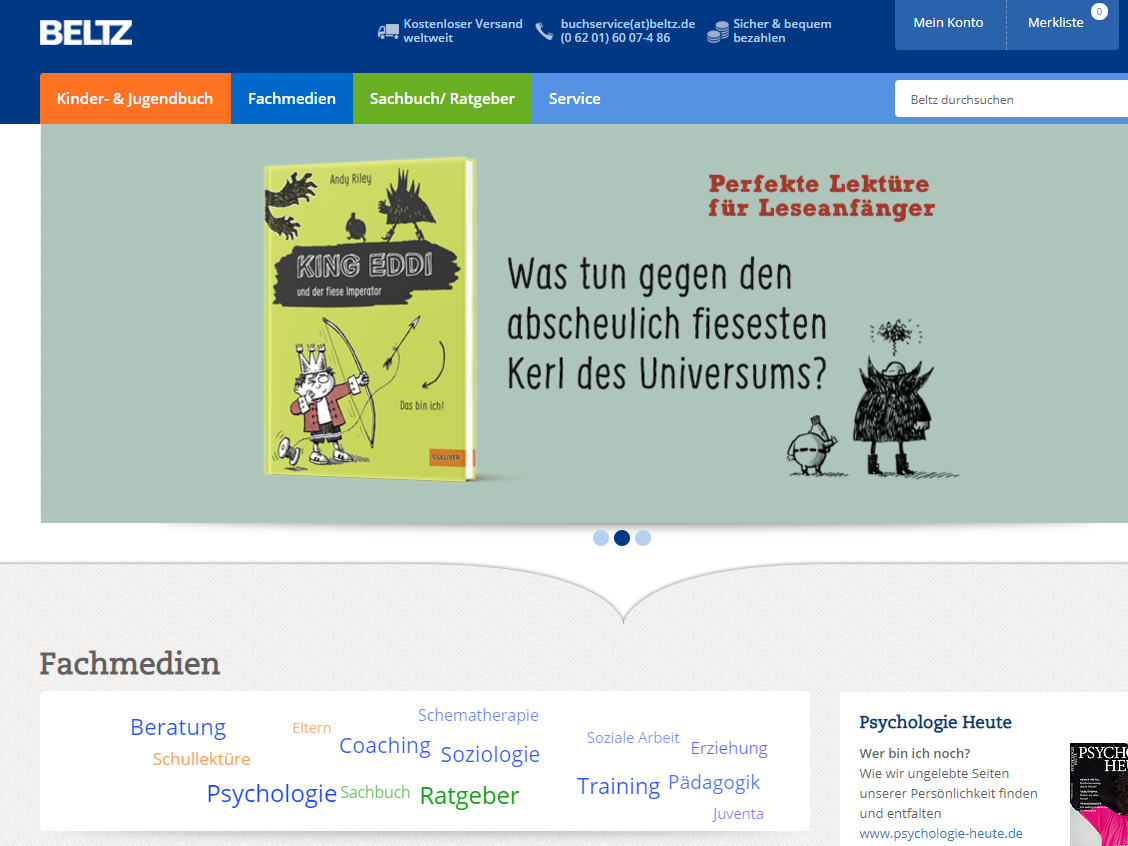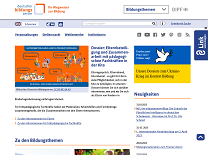The Australian Council for Adult Literacy (ACAL) supports adult literacy promotion. It thus provides a forum offering an opportunity for practical exchange, and the Council also supports research on adult literacy promotion. The ACAL website features a newsletter, the so-called Literacy Link, as well as the ACAL eNews, an electronic newsletter readers can subscribe to (back issues can be accessed). “Literacy Live“ offers a virtual conference room, and the domain of “Papers and Reports“ features reports, essays and other material on reading promotion in Australia. A comprehensive collection of links provides insights into other projects and institutions working in the field of reading and adult literacy. Furthermore, the site offers access to providers of reading and literacy opportunities, including the „Reading Writing Hotline“.
Language: English URL (original): http://www.acal.edu.au Address: info@acal.edu.au 2283 2601 Canberra
https://www.bildungsserver.de/bisy.html?a=5940&spr=0
Der „Australian Council for Adult Literacy (ACAL)“ unterstützt die Leseförderung bei Erwachsenen. Dazu wird ein Forum zur Verfügung gestellt, in dem ein Austausch über Probleme stattfinden kann. Des Weiteren unterstützt der Council wissenschaftliche Studien zur Leseförderung bei Erwachsenen. Auf der Homepage des ACAL findet man unter anderem den Newsletter, den so genannten „Literacy Link“. „ACAL eNews“ ist ein elektronischer Newsletter, den man abonnieren kann. Im Bereich der eNews lassen sich auch die vergangenen Ausgaben dieses Newsletters nachlesen. Unter „Literacy Live“ findet sich ein virtueller Konferenzraum, in dem online Treffen stattfinden können. Aufzeichnungen von virtuellen Konferenzen zu verschiedenen Themen sind verfügbar. Im Bereich der Papers und Reports finden sich eine Reihe von Aufsätzen, Stellungnahmen und Reportagen zu allgemeinen Themen der Leseförderung sowie zu aktuellen politischen Entwicklungen in Australien. Eine umfangreiche Linksammlung gibt einen Überblick über andere Projekte und Institutionen, die in der Leseförderung und angrenzenden Bereichen tätig sind. Unter „Providers“ findet man Hinweise auf Anbieter im Bereich der Leseförderung, wie etwa die „Reading Writing Hotline“.
Sprache: Englisch URL (original): http://www.acal.edu.au Adressangaben: info@acal.edu.au 2283 2601 Canberra










